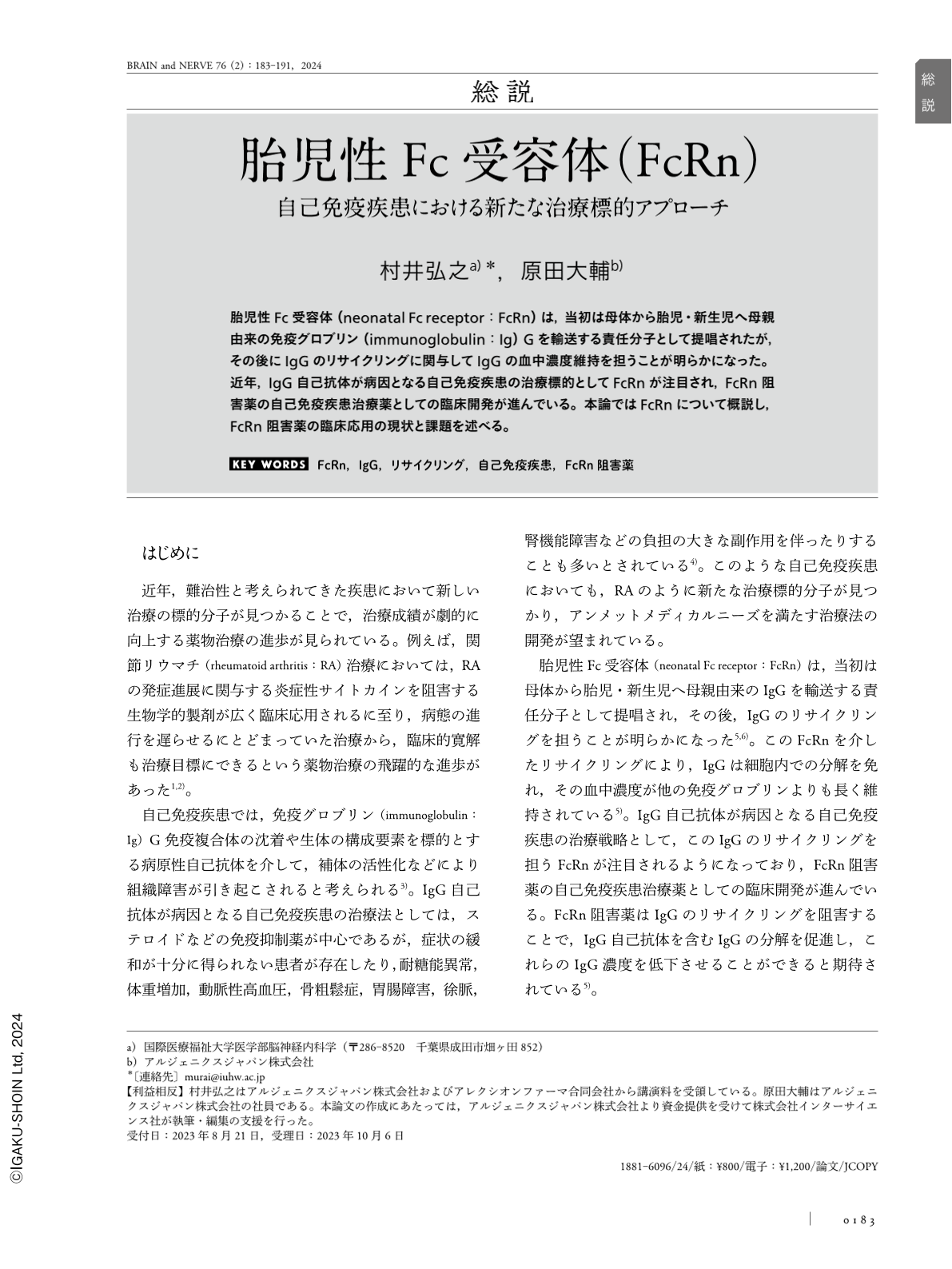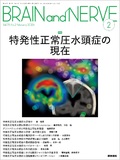Japanese
English
- 有料閲覧
- Abstract 文献概要
- 1ページ目 Look Inside
- 参考文献 Reference
胎児性Fc受容体(neonatal Fc receptor:FcRn)は,当初は母体から胎児・新生児へ母親由来の免疫グロブリン(immunoglobulin:Ig)Gを輸送する責任分子として提唱されたが,その後にIgGのリサイクリングに関与してIgGの血中濃度維持を担うことが明らかになった。近年,IgG自己抗体が病因となる自己免疫疾患の治療標的としてFcRnが注目され,FcRn阻害薬の自己免疫疾患治療薬としての臨床開発が進んでいる。本論ではFcRnについて概説し,FcRn阻害薬の臨床応用の現状と課題を述べる。
Abstract
Neonatal Fc receptor (FcRn) is involved in recycling of IgG. Recycling begins with IgG-uptake into the cell through pinocytosis. Subsequently, IgG binds to FcRn in acidic vesicles, which results in the recycling of the FcRn-IgG complex to cell surface, and the release of IgG in blood with neutral pH. Whereas IgG unbound to FcRn is not recycled and thus degraded in lysosomes. Therefore, FcRn plays a critical role in maintaining IgG levels in the blood. Recently, FcRn has been considered a therapeutic target for autoimmune diseases caused by IgG autoantibodies, and FcRn inhibitors are developed as therapeutic agents for the diseases. As one example, the administration of an FcRn inhibitor, efgartigimod, reduced IgG and anti-acetylcholine receptor antibody levels in patients with generalized myasthenia gravis (gMG), and improved Myasthenia Gravis Activities of Daily Living score in the phase III trial. In 2022, Efgartigimod Alfa was approved for the treatment of gMG (only when treatment with steroids or non-steroidal immunosuppressive drugs do not lead to sufficient response), regardless of antibody status in Japan. Since FcRn inhibitors have just begun to be used in clinical practice, it is important to accumulate real-world data regarding their efficacy and safety.
(Received August 21, 2023; Accepted October 6, 2023; Published February 1, 2024)

Copyright © 2024, Igaku-Shoin Ltd. All rights reserved.


